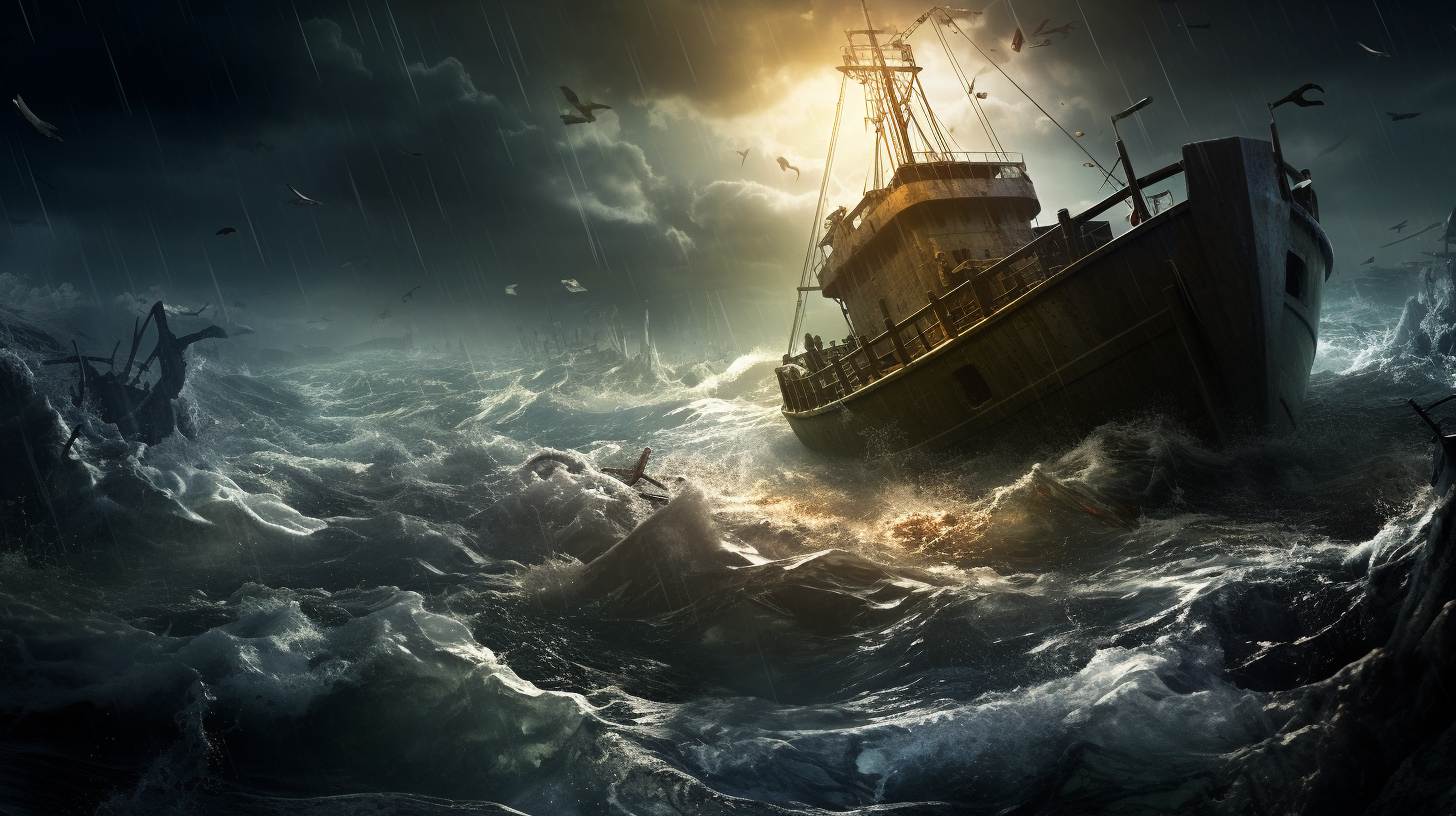In the relentless grip of Neptune’s Vengeance, we have come to inhabit a world where the oceans, once cradles of life, reign with unchecked fury. The saltwater expanses, no longer just a testament to the vast unknown, have become cauldrons of chaos, stewing with the residues of human hubris. This narrative explores our knowledge of the seas now, not through the lens of discovery, but survival—to map a living nightmare under the reign of an outraged Poseidon.
The Deepening Desolation: The inescapable truth we once escaped in ocean depths has come ashore—our seas are barren and furious. The intricate dance of currents and tides dance no more; they thrash and batter against the man-made confines now holding them back, a testament to their wrath. Leading scientists, who now can be more accurately described as chroniclers of demise, articulate these patterns. Their studies do not seek solutions, for we have devolved past the point of remedies, instead, they document decline—the swansong of oceanography.
‘Breathless Zones,’ what should be a misnomer, are becoming a concrete reality. These patches of ocean, lifeless due to oxygen depletion, sown by fertilizer runoff and fed by global warming, expand unabated. A grotesque result of unchecked industrialization, these zones spell doom, silencing once-vibrant ecosystems. Yet, we persist in documenting, as if we believe there is wisdom in detailing the manner of our suffocation.
As our analysis deepens, so does our dread. Ocean acidification is not a phenomenon studied; it is an experience lived—a corrosive malady etched into the stone of our collective experience. Calcified skeletons of marine life litter what remains of the coral cemeteries, their silent contours a mockery of the once teeming refuges they offered. We stand by as acidic seas dissolve millennia within decades, donning our apparatuses of observation as we peer into the abyss that we expedited.
The Anthropocene Echo: Humanity’s footprint echoes profoundly in this baleful symphony. The synthetic concoctions we manufactured have birthed monstrous forms beneath the waves. Mutations—nature’s desperate gamble in the face of toxic infiltration—flourish in the fetid brine. Our beaches, where children once played, are now theaters of the absurd, where jellyfish roil in metastatic profusion and shores glisten with plastic sand.
Our edification in all things oceanic serves now only to chronicle the unstoppable rise of the seas. Satellite imagery, once a tool to gawk at the marvel of our blue planet, now starkly outlines our disappearing coastlines. Cities, swallowed whole, stand as submerged monuments to our aquatic nemesis. Even as we measure and calculate, these saltwater tendrils creep deeper into our doomed dominions.
Amidst this liquid armageddon, a new breed of oceanographer has emerged—the Harbingers. These individuals, erstwhile stewards of marine conservation, now serve as our Cassandra’s, prognosticating our inevitable dissolution into Neptune’s domain. They speak not of prevention or hope, but of a darker truth: that the sea, indomitable and wrathful, claims what was once its own.
We exist within this paradox of understanding—armed with knowledge yet impotent in the face of relentless retaliation by the world’s oceans. Maybe, we ponder in our more philosophical moments, this rage is deserved. As poignant lessons from times bygone fall on deaf ears, we can’t help but reflect on the irony that in cataloging the death throes of our oceans, we chronicle our own demise.
